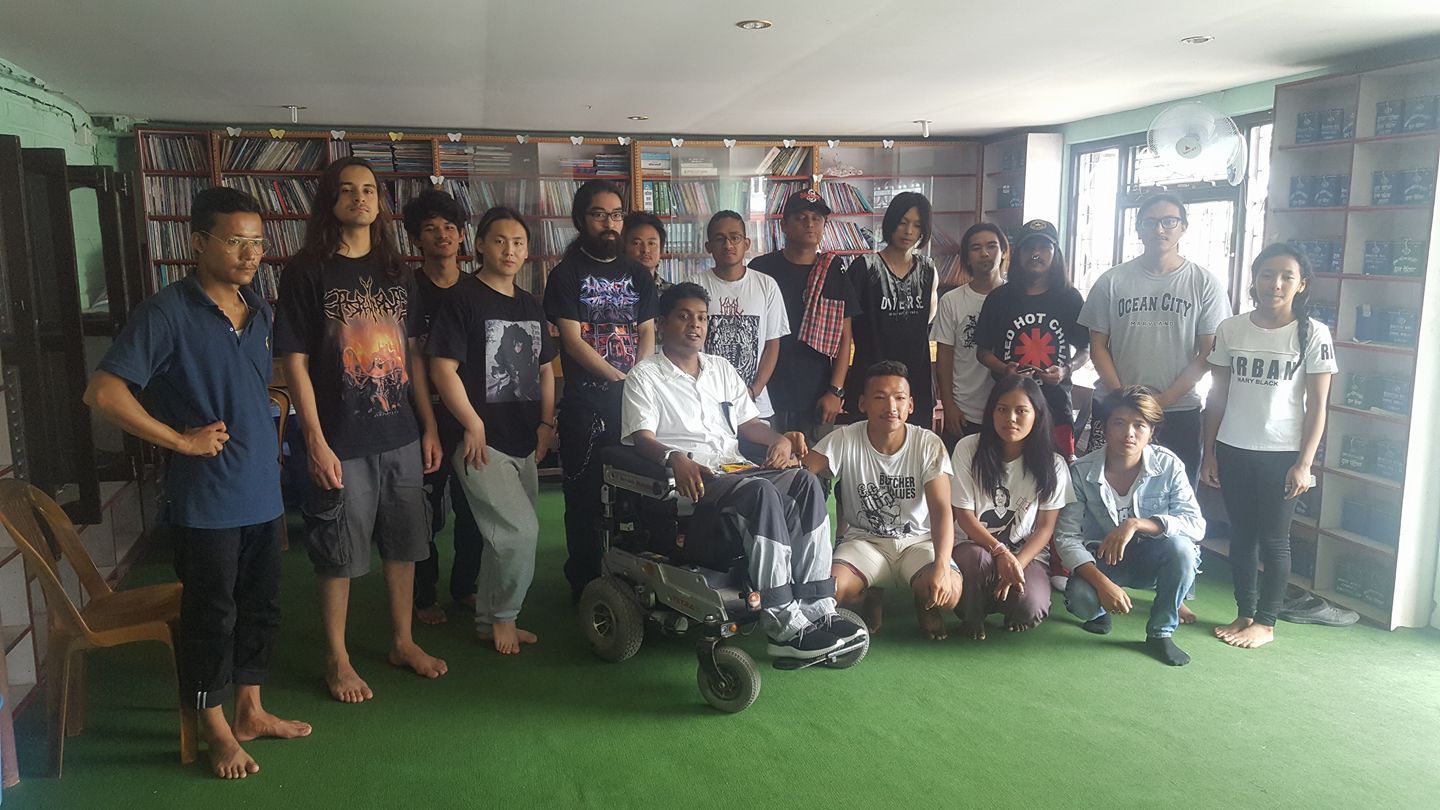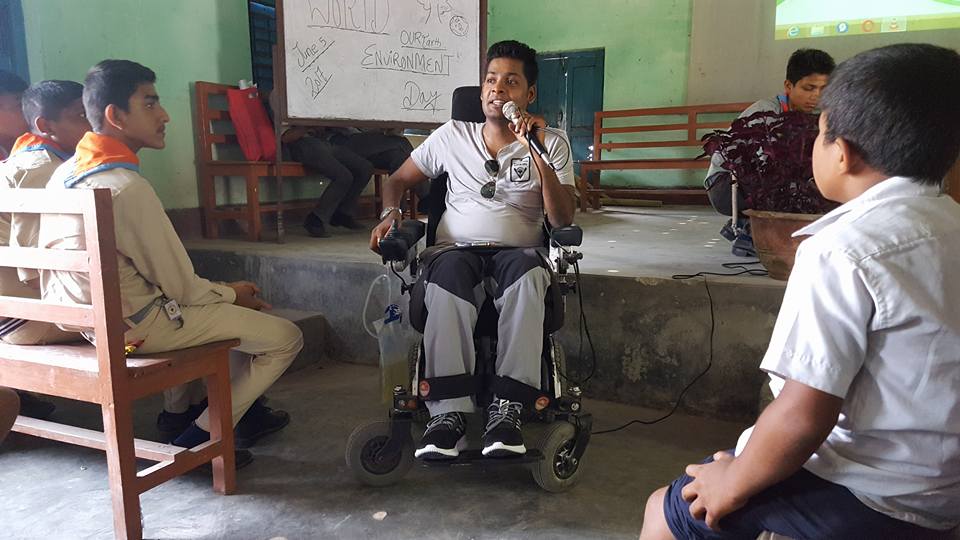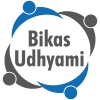Social Change Makers Blog Series Issue No 2: It is Mind That Matters the Most
What comes to your mind when you imagine a person with a wheelchair? Someone helpless or something else? It is time to move away from these prejudices, because we are sharing you a story of a library activist who travels in Eastern Nepal in a wheelchair. Bheshraj Neupane, a resident of Damak Jhapa is doing something special to change our society, in which there are many barriers to physically disabled people. With his sheer determination and courage, he has been able to establish the largest public library in Damak and is promoting a culture of study in Eastern Nepal. We hope his story will inspire you.
When did you decide to start your public library initiative?
It has a long story. When I got injured in 2061 BS, I lost most of my active parts. When I was able to sit in a wheelchair, I started to read books, to pass the time. That was the only way to be engaged. Philosophical books were my personal favorites.
One day I learned of Napoleon Hill and his book. I wanted to read that one. I tried to search that book in the available book stores nearby, but could not find. All my effort was in vain. Nobody was able to bring that book for me. Then I realized, in an emerging city like Damak with a growing population day by day, I had to struggle to find a book I wanted to read. I imagined there could be many people, who are in my situation as well. So, I decided to build a library thinking that there should not be a next person like me searching for a book in town.
How did your injury happen? Can you share some of the early moments?
I was preparing to go in the army that time. One day, I was working in the balcony of my house. Accidently, I fell down from there. When I became conscious, I was in a hospital bed. None of the parts of my body were functioning. Doctors said I had a spinal cord injury, which is hard to recover from. My dreams, ambitions were all scattered. A wheelchair, became my new partner. My fingers were not working. Everything had to be done by others.
I was depressed seeing this unexpected change in the conditions of my life. It was something like a train going the opposite direction or losing its way. I used to think a lot of about my future condition. I used to wonder where all my strength, energy and power had gone.
Then how the things settled? How the thinking of library project moved forward?
As I said earlier, when I could not find the book I wanted, I was feeling motivated to do something. Another reason is the effect of the book itself. It is books that showed me the new path in my life. I was alive again. It is a nice feeling to read books. I wanted to share that experience with everyone, particularly those who want to do something in life.
I shared my idea with one of my friends named Hari Sitaula. He agreed immediately and found some friends who could help that as well. He invited another friend as well. By raising 20 thousand each, we started the library. Then many other supporting hands came in. It is the team effort, which is paying off now.
What were the early hardships? How did you deal with them?
I heard that even before our initiative, there were other libraries which started and closed. Ensuring continuity was a major challenge. We found that raising fund was easy, but bringing people into library and establishing a reading culture was a major challenge. We lead both moments together, organized campaigns for reading culture and organized several programs in the library.
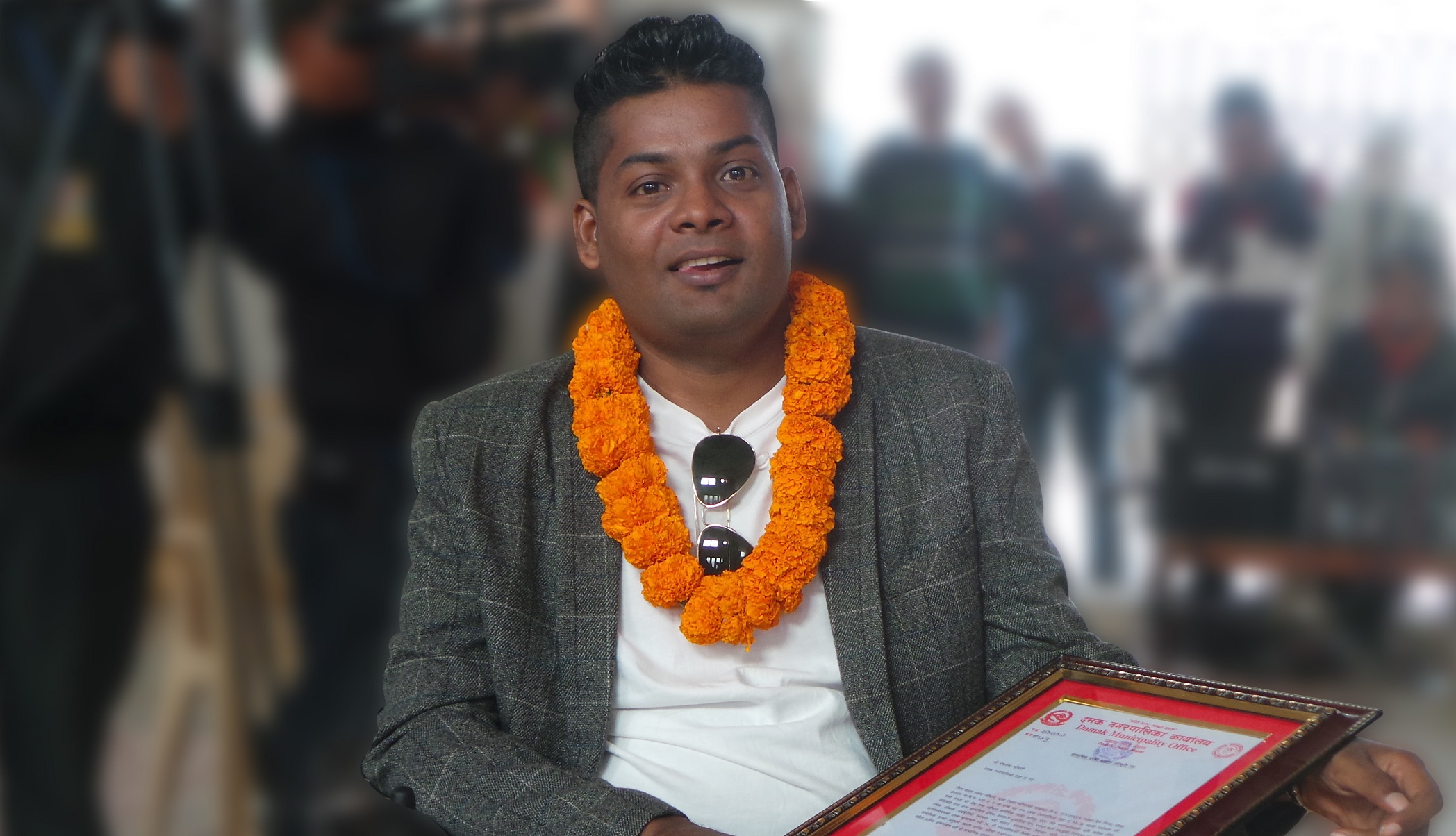
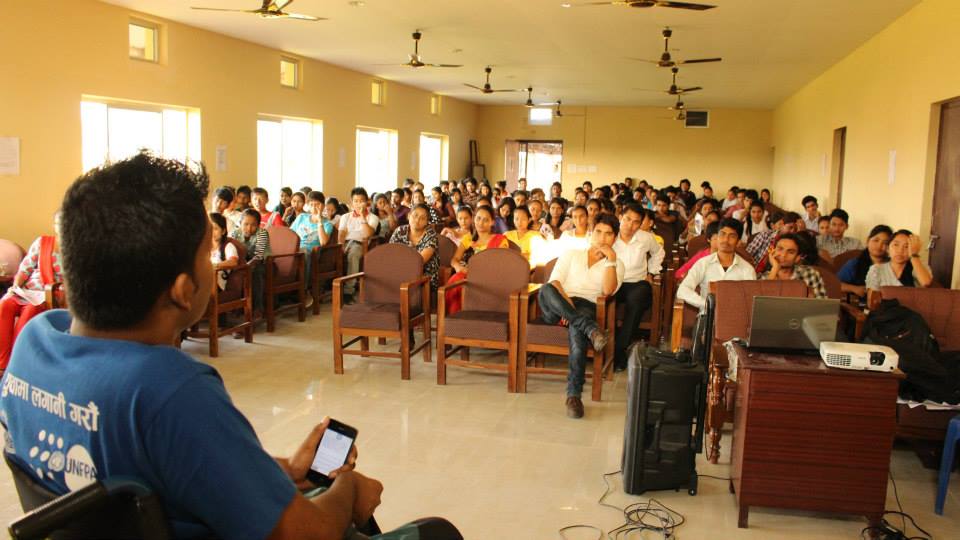
What happened after establishing the library? How was the early response from the community?
First, we had established the library in the small room in my home. It was small that time. Very few books and some magazines were there. We were little hesitant calling people there as well. Later we expanded that to an outer space.
People thought we were selling stationary. They used to come to buy a copy, pen, chart paper etc. It was hard for them to understand it was a library. Then we worked on several readership awareness campaigns.
Though there were magazines and books, very few people were coming to read. We had to organize a press meeting to tell people that they can come and read for free.
Any interesting event you remember after establishing the library?
Once I was sitting in my library, one man came. He said he had read about me. In fact, he was coming to Damak for some work, but decided to come to meet me. Other people also thanked me for taking this initiative. Many organizations invited me as a guest speaker. I am happy to share my experiences with them. They meet me and say my story motivates them. This is the greatest pleasure.
How do you see current youths?
I think they are being addicted to social sites. Yes, it obviously helps you to socialize. It helps your organization grow, but it should be managed properly. In Nepal, the library culture is yet to grow. Book reading communities are very few. Even parents don’t encourage children enough to read. Why I say this is because all the innovations in the world came from the library so we should not deny that. But I see some youths as well. I see a great future in them. They often come to read and organize book and reading related discussion series.
What are the challenges being a physically disabled social activist? How do you want to encourage them?
First, I believe that rights don’t come easily, we have to fight for it. If I had not dared to come out of my home, I would have never been able to do the things that I did. If I had not had the dream to establish the library, it would have never become a reality
Both government and citizens should learn to help physically handicapped people. There are few facilities given. It is hard to travel using public transport. However, if you have the courage to ask for help, people will help. However, because we are silent, many existing facilities do not cater to our needs.
The only thing I want to say to young people is that in the current world it is your mind that matters the most. If you cannot be a Mahout, your life elephant goes out of control.
What suggestions do you want to give to youths who want to be socially engaged?
If you want to work in the social arena, start with volunteering. First, have a good heart and serve people. Then you will know which field you can best serve in. If you are fine with volunteering, then I don’t see the need why you should start an initiative by your own. You can contribute some already established initiatives to grow. And wherever you are, be a nice person.
To know more about him and his work:
Website: http://damakpubliclibrary.com/
Watch the introductory video: https://www.youtube.com/watch?v=h0Wb14ZZ7L8
